Voynich Manuscript for Kindle and other eBook Readers
For years I've been mildly obsessed with the Voynich Manuscript. An ancient book, written in a language no one can decipher, showing plants which don't exist, and measuring astronomical configurations which make no sense. The book is an enigma. Many think it to be an elaborate hoax - others have more.... esoteric explanations.
Regardless of what the book means, it is a beautiful and mysterious work of art. And I want to read it on my Kindle!
Archive.org has an ebook version of the Voynich Manuscript, but it has gone through a bizarre OCR process which, unsurprisingly, leaves it unreadable. So I've decided to roll my own!
Getting The Manuscript
The PDF on Archive.org is a bit cumbersome and doesn't work very well on Kindle or other readers. The Yale site has all the scans available as high-res JPGs or MrSIDs - but it's a pain to download hundreds of images from the site. So - I turned to a torrent. Don't worry! These images are hundred of years old - they are in the public domain.
The Original Image
The images I obtained are extremely high resolution scans of the manuscript. 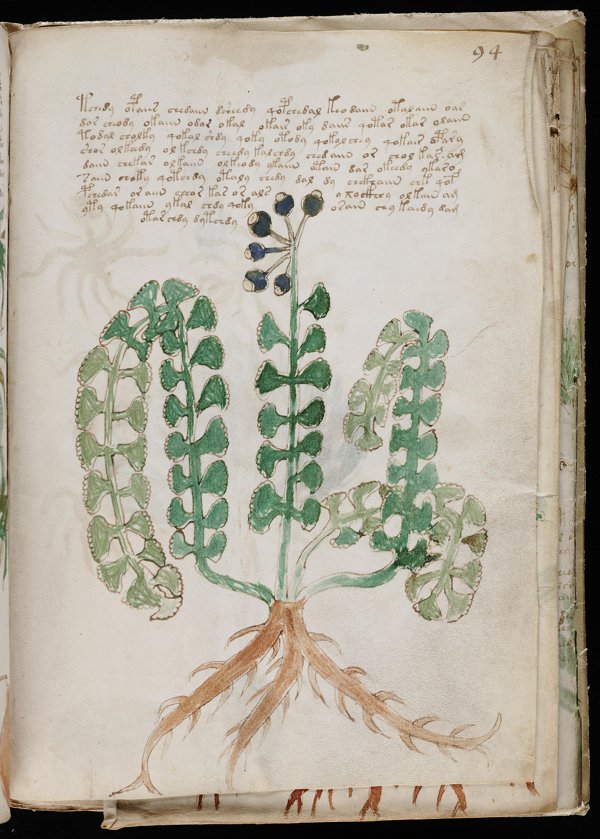
I've shrunk down the above image - here is a detail of it, so you can see just how high quality the scans are. 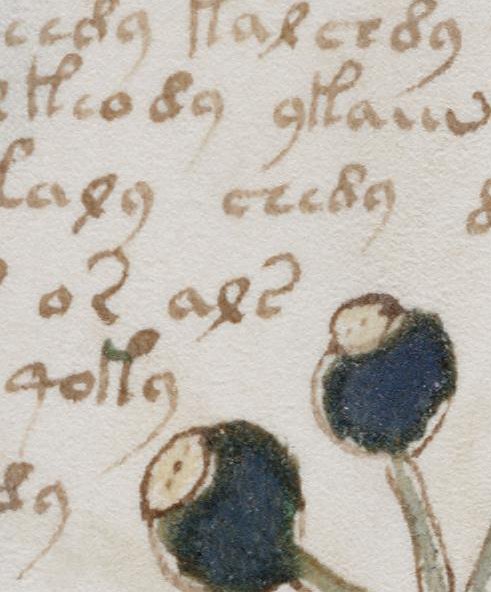 A typical page is 3MB - taking the whole book to around 700MB. There's easily enough space on the Kindle, but the time to render every page will be prohibitively long.
A typical page is 3MB - taking the whole book to around 700MB. There's easily enough space on the Kindle, but the time to render every page will be prohibitively long.
Crop and Resize
Firstly, the image needs to be cropped to the same aspect ratio as the Kindle screen (0.75), then resized to 600*800.  From 3MB, the image is now 111KB.
From 3MB, the image is now 111KB.
Greyscale
eInk typically only handles greyscale images. So I dropped the colours out of the image. 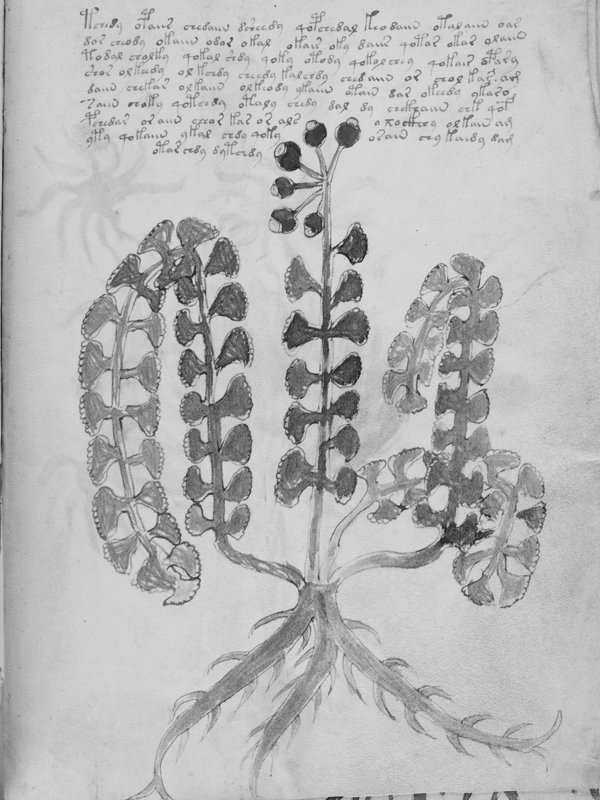 This takes the file size to under 100KB.
This takes the file size to under 100KB.
We can make the image marginally clearer to read by dumbly removing the background colour.  As you can see, this doesn't look wonderful - many details are lost and there are odd looking artefacts throughout the image.
As you can see, this doesn't look wonderful - many details are lost and there are odd looking artefacts throughout the image.
How They Look On The Kindle
The images look fantastic on the Kindle.
It turns out that there's no real need to remove the background colours - although it does make it maginally clearer. Changing the the image to greyscale also has little appreciable difference. I think I'll probably keep them in colour so that future ebook readers can see them in all their glory.
Incidentally, I tried the high-resolution file. The kindle took around 30 seconds to render it. Here's a quick screen grab of it fully zoomed in.
TODO
This is a work in progress. Converting several hundred images will take a fair bit of time - unless I fully automate it and drop the cropping. The Kindle can be hacked to display images (or use them as screensavers) - but I will convert the images into an ePub and Mobi so they can be easily read by all eReaders. Once done, I'm sure the mysteries of the universe will be revealed to me!
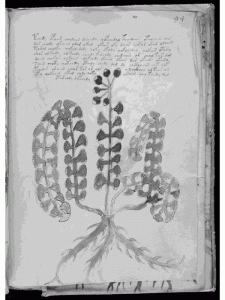

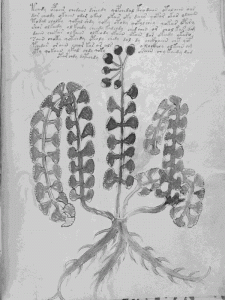

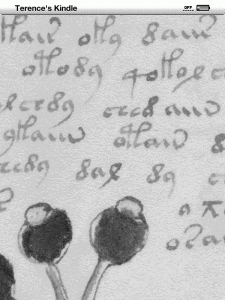
 Converting the Voynich Manuscript into an eBook
Converting the Voynich Manuscript into an eBook
Mark Honeychurch says:
Terence,
Did you ever manage to finish this project? I really want a copy of the Voynich manuscript for my kindle, and agree with your conclusion that a scaled, cropped colour .mobi version would be a good solution. If this is still a work in progress, I'd be happy to help.
mark.
Pavel says:
Sir, only today the first time I ran into this mystery. So, I'm a new eye... I'm looking into the images provided for the Voynich Manuscript, and from the first glance it looks for me that it is indeed some Eastern European language written in Cyrillic alphabet. I was even able to read few words which make sense in Russian - Polish - or maybe Czech languages. Do you know if any research was done in that direction? (I mean Cyrillic alphabet + Eastern European language ?) . Still while trying to read some pages, I noticed unnatural repeating of some words, which is not natural in Eastern European languages, until it is some kind of song or poem. Or, can it be Latin language written in Cyrillic? The fact that I found some words which make sense in Russian, can be coincidence , but still worth looking...
Mark says:
Dear Terence Eden. The Beinecke Library electronic collection graphics files used to have a resolution of 400 dpi. Now the resolution has decreased and it has become impossible to read the details. The manuscript was photographed with a Phase One IQ180 camera, which has a resolution of 10380 x 7816 or 80 megapixels. Could you please give me a link to manuscript files at 1200 dpi or higher? Respectfully, Mark.
Translated with http://www.DeepL.com/Translator (free version)
@edent says:
High resolution images appear to still be available from the Beinecke Library. For example https://collections.library.yale.edu/iiif/2/1006208/full/2500,/0/default.jpg